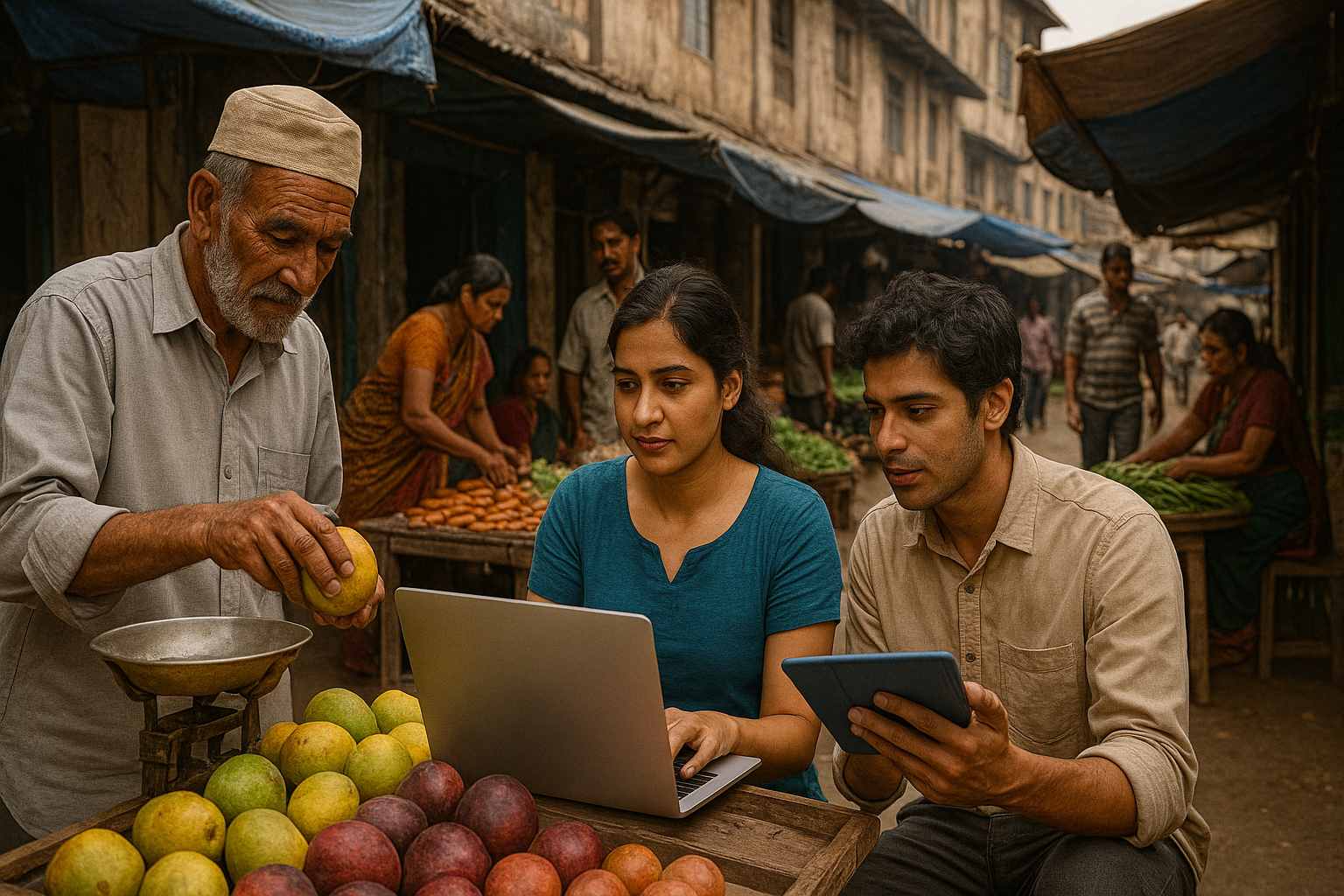Turning Informality into Opportunity: How Small Entrepreneurs Fuel Developing Nations
A new World Bank report reveals that informal entrepreneurs, from street vendors to home-based workers drive up to 60% of GDP and over 70% of jobs in developing countries. It urges governments to simplify regulations, expand financial access, and support women-led enterprises to turn informality into inclusive growth.

A new World Bank working paper, produced in collaboration with researchers from the Global Entrepreneurship Monitor (GEM) and the International Labour Organization (ILO), casts fresh light on one of the most dynamic yet least recognized sectors in developing economies, informal entrepreneurship. The study explores how millions of small business owners across Africa, Asia, and Latin America sustain livelihoods, generate employment, and fuel local economies despite operating outside the formal system. From roadside vendors and repair workers to home-based artisans and traders, these entrepreneurs form the backbone of many societies, even as they navigate daily struggles for survival, credit, and legitimacy.
Necessity and Choice Behind Informal Businesses
Not all informal entrepreneurs are the same, the report notes. For some, informality is a matter of survival. These are the necessity entrepreneurs, people who start small businesses because they cannot find formal jobs. Others are opportunity entrepreneurs who choose informality for its flexibility, independence, or freedom from bureaucracy. While the first group fights to make ends meet, the second group often thrives by using local networks and creativity to fill unmet needs in their communities. Together, they reveal how informal entrepreneurship is both a coping mechanism and a driver of innovation in resource-scarce environments.
Why So Many Stay Outside the System
The World Bank study highlights several deep-rooted barriers that keep entrepreneurs in the shadows. Registering a business in many developing countries can take months, involving complex paperwork and high costs. Corruption, inconsistent enforcement, and poor governance discourage compliance, while many entrepreneurs simply do not trust that formalization will benefit them.
Another major hurdle is financial exclusion. Without collateral or credit history, most small entrepreneurs are unable to secure loans from banks. Instead, they rely on family savings, informal lenders, or rotating savings groups to fund their ventures. “Access to affordable finance remains the single most powerful incentive for formalization,” the report concludes. Digital banking, microcredit, and mobile payment platforms could make formal systems more accessible for small-scale businesses.
A Powerful Yet Undervalued Economic Force
Despite operating off the books, the informal sector plays a massive role in national economies. The report estimates that informal enterprises contribute between 25% and 60% of GDP in developing countries. In sub-Saharan Africa and South Asia, over 70% of non-agricultural jobs come from informal work.
Women make up a large share of this workforce. They dominate in areas such as food vending, tailoring, beauty services, and small-scale retail. Yet, women-owned informal enterprises tend to be smaller and less profitable, constrained by limited access to assets, education, and childcare. Without gender-sensitive reforms, the report warns, women entrepreneurs will remain trapped in low-income activities despite their central role in local economies.
Productivity Gaps and Glimpses of Innovation
Informal firms are usually less productive than their formal counterparts because they lack access to technology, training, and stable markets. But the study challenges the assumption that informality means stagnation. Across developing economies, informal entrepreneurs show striking levels of creativity and resilience.
The report points to examples like mobile money vendors in Kenya, informal transport networks in Nigeria, and street-food entrepreneurs in India, all demonstrating how innovation can emerge outside formal boundaries. These small businesses often act as economic shock absorbers, cushioning communities against downturns and providing vital goods and services when the formal sector contracts.
Pathways to Inclusion and Growth
The report argues that governments should shift from penalizing informality to making formalization easier and more beneficial. Successful examples from different regions show that reform works when bureaucracy is reduced and incentives are clear.
In Ghana, simplified tax registration for vendors has encouraged many traders to come forward. India’s growing digital payment ecosystem has increased visibility for microenterprises, though credit remains elusive. In Peru, decentralized registration centers and microenterprise support programs have boosted formalization rates by about 15%.
The World Bank recommends a set of practical measures: simpler registration and tax procedures, expanded access to microfinance and digital banking, entrepreneurship and vocational training, and stronger social protection systems for informal workers. It also calls for gender-responsive policies, from childcare support to fair asset ownership laws, to enable women to grow and formalize their businesses.
From the Margins to the Mainstream
The study concludes that informal entrepreneurship should not be dismissed as a symptom of poverty but embraced as a source of resilience, creativity, and inclusive growth. Informal entrepreneurs respond to market failures and institutional gaps with resourcefulness and determination. With better access to finance, technology, and supportive regulation, they could become powerful engines of transformation.
As the report puts it, the goal is not to eliminate informality overnight but to bridge the gap between the informal and formal worlds, making it easier for small entrepreneurs to grow, innovate, and thrive. These entrepreneurs, often seen as marginal players, are in fact central to the future of inclusive economic development. If governments can build trust and remove barriers, the informal economy could well become the foundation of the next wave of sustainable growth in the developing world.
- FIRST PUBLISHED IN:
- Devdiscourse
ALSO READ
Vibrant Gujarat Conference Highlighted by World Bank's Strategic Interest
World Bank Directors Defy U.S. to Tackle Climate Change
World Bank: Bangladesh’s Economy Rebounds but Reforms Needed for Sustained Growth
World Bank: Europe and Central Asia Show Resilience but Face Jobs, Growth Hurdles
World Bank: Sub-Saharan Africa’s Growth Strengthens but Jobs Lag Behind










